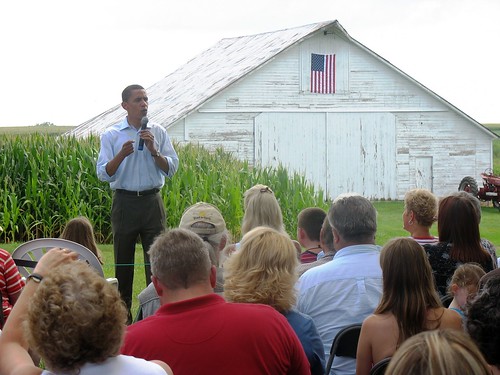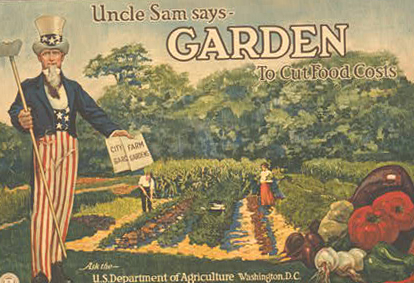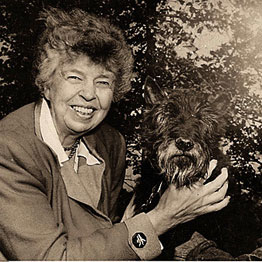 It's hard to believe I've never read Rachel Carson's Silent Spring before now. I've been meaning to read it for years, and I'm so glad I've finally gotten around to it.
It's hard to believe I've never read Rachel Carson's Silent Spring before now. I've been meaning to read it for years, and I'm so glad I've finally gotten around to it.It really is an incredible, revolutionary, prescient, and brilliant book. So much of what Rachel Carson wrote is so relevant for those of us engaged in growing food now, and really for anyone who cares about the health of the planet and our own health.
I always thought that Silent Spring was just about DDT. It is so much broader and deeper than that--it's really an indictment of the whole way of thinking that sets humans apart from the rest of the natural world.
Silent Spring has a lot to say about how we grow food. Carson's comments on agriculture are still relevant and cutting-edge, even 50 years later. She advocates polyculture/interplanting and explains the problem with monoculture (although I don't think the word had been coined yet), explains the concept of broad-spectrum insecticides--which she says should really be called "biocides," discusses the affect of pesticides on honeybees, explains the way that invasive species of plants and insects can disrupt ecosystems, and exposes the history and origins of synthetic pesticides. She explains that the first synthetic pesticides were developed during WWII, and were chemical agents developed by the military for use in chemical warfare, intended to be lethal to humans. Insects were used to test the poisons, and it was inadvertently discovered that they were also lethal to insects.

Reading Silent Spring has made me bump Linda Lear's biography of Rachel Carson to the next-up spot on my reading list - I'm just staggered by the breadth of this woman's knowledge and analysis, and moved by her beautiful writing. She apparently wrote Silent Spring while suffering from rapidly-metastasizing breast cancer, racing against the disease to finish her life's work. In the 18 months that she lived after the book was published, she was viciously attacked by the chemical industry, which branded her a "hysterical spinster."

Portrait of Rachel Carson from Robert Shetterly's "Americans Who Tell the Truth" series.
I honor the "hysterical spinsters" of days gone by as my feminist foremothers, and am so grateful for Rachel Carson's courage, vision, and brilliance in defense of systems of life on the planet.
Here are some quotes from what I've read so far:
- "Under primitive agricultural conditions the farmer had few insect problems. These arose with the intensification of agriculture--the devotion of immense acreages to a single crop. Such a system set the stage for explosive increases in specific insect populations. Single-crop farming does not take advantage of the principles by which nature works; it is agriculture as an engineer might conceive it to be. Nature has introduced great variety into the landscape, but man has displayed a passion for simplifying it. Thus he undoes the built-in checks and balances by which nature holds the species within bounds. One important natural check is a limit on the amount of suitable habitat for each species. Obviously then, an insect that lives of wheat can build up its populatio nto much higher levels on a farm devoted to wheat than on one in which wheat is intermingled with other crops to which the insect is not adapted."
- "The most alarming of all man's assaults upon the environment is the contamination of air, earth, rivers, and sea with dangerous and even lethal materials. This pollution is for the most part irrecoverable; the chain of evil it initiates not only in the world that must support life but in living tissues is for the most part irreversible. In this now universal contamination of the environment, chemicals are the sinister and little-recognized partners of radiation in changing the very nature of the world--the very nature of its life."
- "Future historians will be amazed at our distorted sense of proportion. How could intelligent beings seek to control a few unwanted species by a method that contaminated the entire environment and brought the threat of disease and death even to their own kind?"
- "It seems reasonable to believe that the more clearly we can focus our attention on the wonders and realities of the universe about us, the less taste we shall have for the destruction of our race. Wonder and humility are wholesome emotions, and they do not exist side by side with a lust for destruction."
— adj
1. highly original, influential, and important
2. (botany) of or relating to seed
[origin: from Late Latin sēminālis belonging to seed, from Latin sēmen seed]













